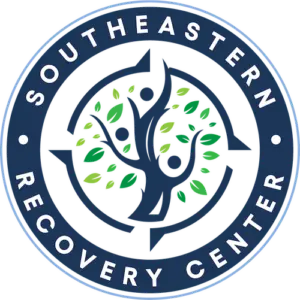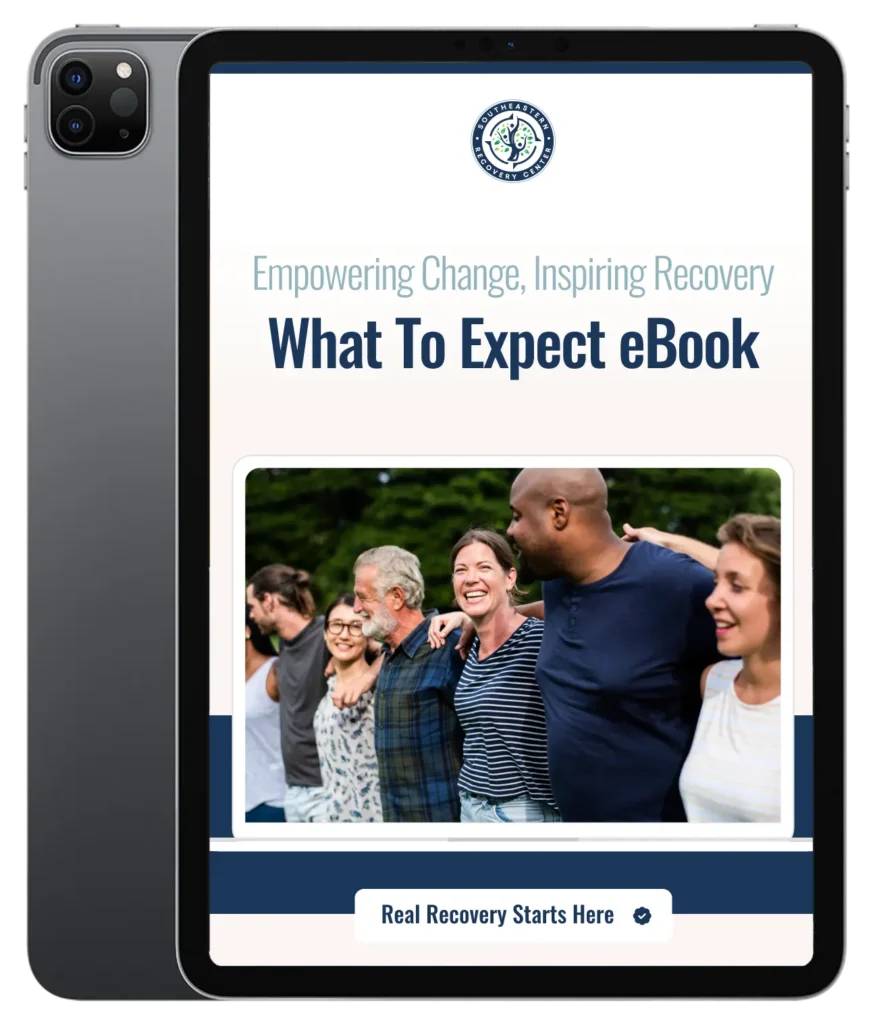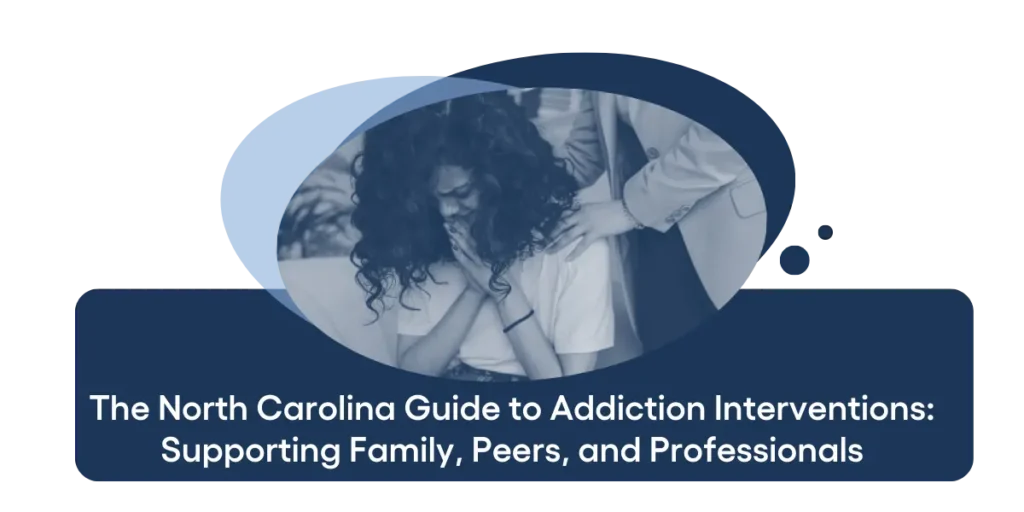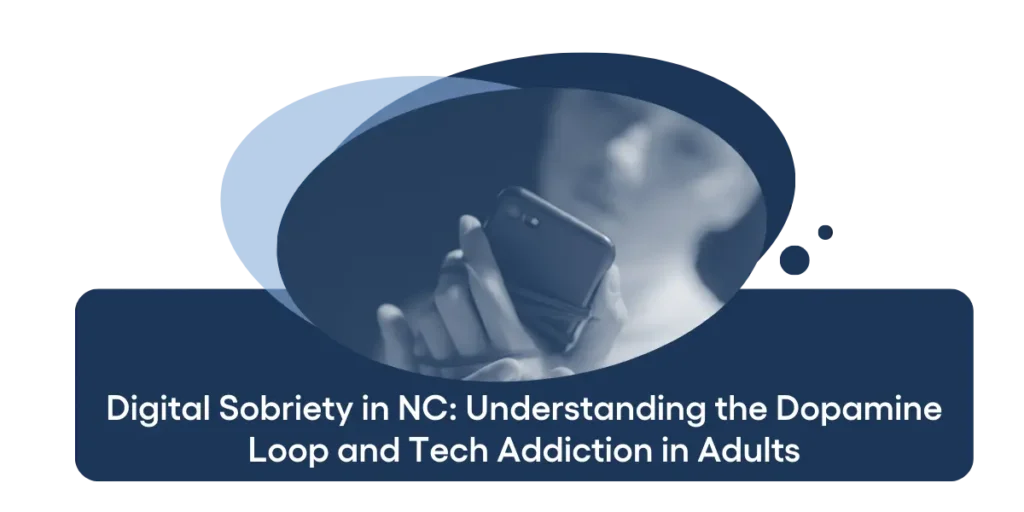Addiction is often called a “family disease” because its impact extends far beyond the individual struggling with substance use.
Just because someone has an addiction doesn’t mean it only affects them. The whole family is involved, whether they like it or not. Addiction brings a lot of confusion and chaos into family life, and many family members end up in unhealthy relationships with both the addicted person and the substances they’re using. To understand how the family is affected, we need to see what kinds of roles family members take on when addiction opens up a big emotional and sometimes physical crisis in their lives.
What Are the Family Roles in Addiction?
When addiction is present within a family, each member often takes on a certain role to deal with the mess. This bad mix of roles keeps going even after the addicted person gets better. Here are seven roles you will often find within a family plagued by the disease of addiction.
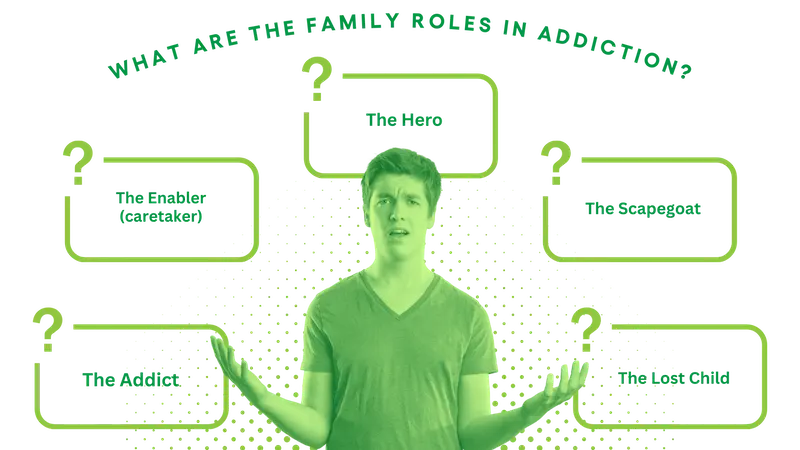
1. The Addict
Addiction affects the whole family. The person with addiction is at the center of family interactions. Their substance use really influences the family’s daily life. The family often adjusts to support the addict or keep them from hitting rock bottom. Members of Al-Anon (for families of alcoholics) have said that “alcoholism is a family disease.” They mean that addiction causes problems for everyone in the family.
2. The Enabler (Caretaker)
The person who helps the addict tries to solve their problems but actually stops the addict from growing and changing. They help the addict avoid dealing with the bad things that happen because of their addiction. They do this in a way that makes life easier for the addict; they might pay the addict’s bills or fix the damage the addict’s behavior has caused. All of these good deeds let the addiction go on and even get worse.
Studies have found that family members of addicts often show signs of codependency. They take care of the addict and put the their needs first.
3. The Hero
In dysfunctional families, the oldest hero child often tries to bring success and stability. They do this by excelling in school, sports, or their career. They try to overcome the family’s problems by looking good on the outside. They “fix” the family’s bad image. But even though they’re mostly perfect on the outside, they’re not doing great on the inside. They’re often scared of failure. They’re feeling a lot of pressure. This leads to anxiety, depression, and other mental health issues.
4. The Scapegoat
The addict’s behavior is pushed aside when the family member takes on the rebellious, rule-breaking role of the Scapegoat. The addictive personality stays strong and hidden. We can blame the family troubles on the rebel cousin or the aunt who disrupts everything. The Scapegoat is helpful in keeping the low family morale from harming the impressive, if not dangerous, family reputation. This way, the addict can keep haunting the family in a much easier and more socially acceptable way.
5. The Lost Child
The Lost Child turns to solitude as a way to handle the chaos of family life. We see this child, whose family is noisy and sometimes scary, often hiding in the safety of not being noticed. Unlike other kids who withdraw to avoid being seen (like the Loner or the Dreamer), the Lost Child is good at getting lost in activities. Usually, these activities seem innocent enough, like reading, playing video games, or daydreaming.
The Lost Child also gets lost in these activities as a way to protect themselves.
6. The Mascot
The Mascot is usually the youngest kid. They use jokes and funny games to lift the family’s mood. This makes everyone feel better, but it only works for a while. The family is still dealing with their problems, and the Mascot is still stuck in the same situation. Even though it makes the family feel better, the Mascot’s part isn’t a happy one. A lot of stressed-out families have kids playing this sad, funny role.
How Family Roles Impact Dynamics and Recovery
The National Institute on Drug Abuse says that family members of people with substance use disorders often live a life full of stress, anxiety, and depression.
While these family roles might create a needed sense of order in their loved one’s messy life, they actually keep the family’s emotional problems going. The roles make everyone involved, even those who are innocent, part of a steady but harmful motion. This action keeps the addict close and prevents them from getting real help. When their loved one isn’t around, family members might go to therapy sessions, often fighting their feelings, and even trying to stop the therapist from helping them figure things out.
About one in four kids in the U.S. live with a parent who has a substance use disorder. These kids are more likely to have emotional and behavior problems and even more likely to go down the same path as their parents. They are twice as likely to abuse alcohol and three times as likely to use other drugs as adults.
The Role of Family in Recovery
Getting family members involved in addiction recovery can make a world of difference on the outcome of recovery.
A person in recovery needs good family support to succeed most of the time. Unfortunately, a person in recovery often has unresolved family problems. These problems include family members who are still addicted and refuse to change. They also have family dynamics that don’t work and bring each other down. These unresolved issues add a heavy burden to the recovery process.
Strategies for Families to Support Recovery
Learning more about addiction and how it affects the mind, body, and soul is the first step to really understanding what your loved one is going through. When you understand their pain, you can better help them with love, support, and sometimes tough love.
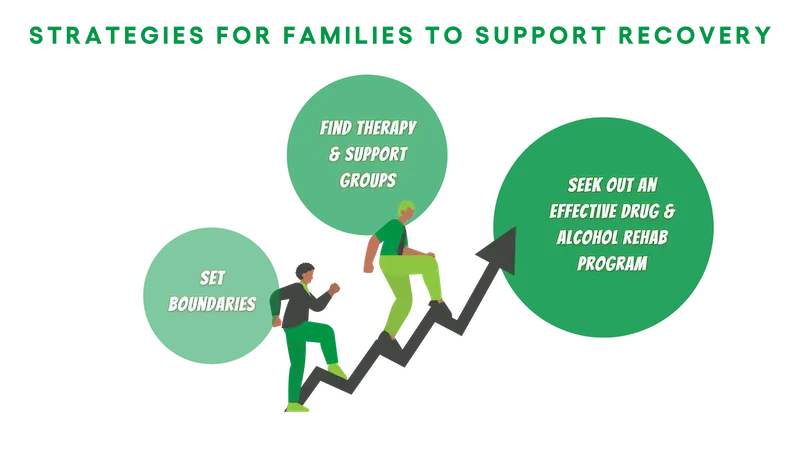
Set Boundaries
Make clear and healthy rules to protect your mental health and help your recovery.
Therapy & Support Groups
Get involved in therapy. Go to family counseling to deal with problems that haven’t been solved and to improve how you communicate.
Find A Drug & Alcohol Rehab
Prompt your loved one to get professional help, like rehab or therapy. Discovering something that really connects with them can take some time. When they are ready, gently suggest they see someone who can help them figure out what caused their drug use and make it less likely to happen again.
Frequently Asked Questions About Family Roles in Addiction
How can family members break free from these roles?
Breaking free starts with awareness. Family therapy helps individuals identify their roles and learn healthier ways to cope. Setting boundaries, practicing self-care, and joining support groups like Al-Anon can also foster change.
Do these roles persist even after recovery?
Yes, these roles can remain entrenched long after an addict achieves sobriety. Ongoing therapy and open communication are essential to address these patterns and ensure the family dynamic evolves positively.
What resources are available for families dealing with addiction?
Families can access support through organizations like Al-Anon, Nar-Anon, and local counseling centers. Many addiction treatment facilities also offer family programs to help members heal together.
Healing Together at Southeastern Recovery Center
We know that addiction doesn’t just affect the person who’s addicted. It hurts their whole family too. That’s why our programs at Southeastern Recovery Center focus on families as well. We think it’s very important, almost like family therapy is a secret weapon. When families are part of the recovery process, and they really help it instead of hurting it, amazing things happen. It’s one of the best ways to create lasting change.If your family is facing addiction, Southeastern Recovery Center is here to help you. We want to support you while you take important steps to get better. You can count on us. Contact us today to begin the healing process.
